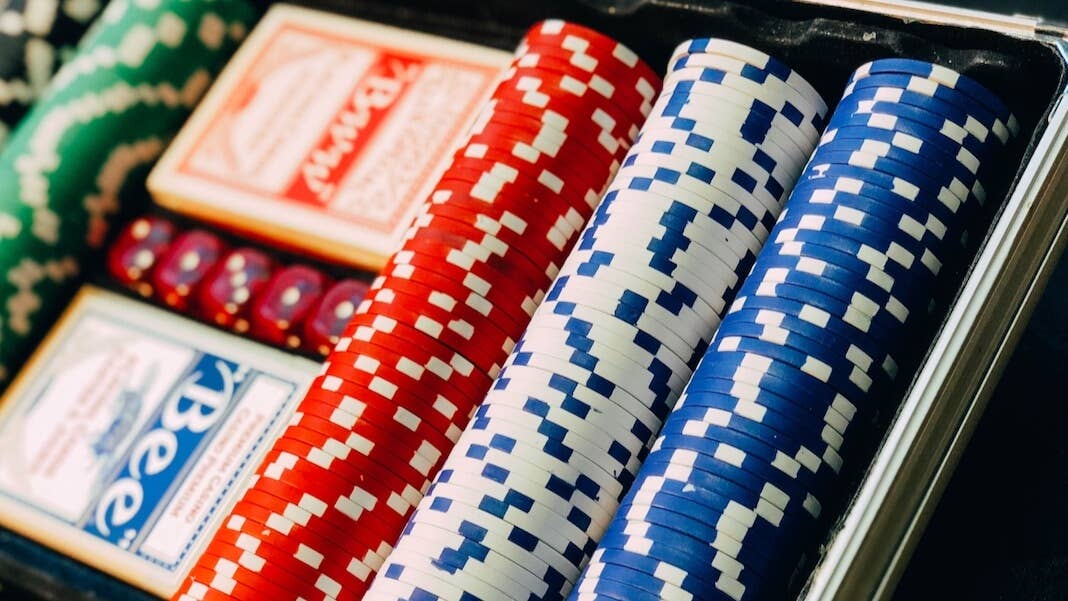$1.5M Robbery of Bellagio Casino Foiled Thanks to RFID Chips

Share
If you're thinking of robbing a Las Vegas casino, and you're not George Clooney, I have a word of advice: give up now. As Anthony Carleo recently found out, even if you leave the casino in one piece, the chips you stole are going to be worthless long before you make your getaway. The 29-year-old suspect is accused of robbing the Bellagio on December 14th of 2010, stealing chips whose face value totaled around $1.5 million. Their real value, however, was zero. Thanks to RFID tags embedded inside them, the chips with denominations of $100 to $25,000 could be immediately deactivated rendering them unredeemable for cash value. Watch CCTV footage from the December 14th robbery in the video clip below, followed by the recent press conference from the Las Vegas Police concerning Carleo's arrest. Stealing worthless chips and then getting caught trying to sell them to undercover officers? Danny Ocean this guy is not.
According to comments made to Minyanville by CHIPCO International, the casino chips used by Bellagio are typical of the industry. Highly specialized markings already make them hard to counterfeit, but embedded RFID tags allow casinos to track their every movement. If a chip is stolen, its ID can be associated with the theft in casino databases, preventing it from being redeemed for cash. Each high-tech chip only costs about $2.50 to make, and they ensure that very little theft can succeed.
Actually, they do much more than that. RFID chips are a form of security, but they are also an amazingly precise way of measuring activity in the casino. The Bellagio and its competitors can track how much each table is making or losing, even verifying that dealers are handling each transaction correctly. They can log how much you spend, where you spend it, and use that information to keep you in the game longer with well-timed drinks and services catered to your activity. If you're using high-rolling chips you can almost guarantee that a casino knows what you're up to. Turns out Big Brother is alive and well, playing craps in Las Vegas.
And he remembered to bring his video surveillance equipment. This short clip from the Bellagio robbery garnered international attention upon its release last year. You can see the suspect fleeing the scene with his motorcycle helmet disguise and less foresight than Mr. Magoo.
Carleo was arrested as the Bellagio robber on January 28th of this year. The Las Vegas police were sparing on the details of his capture, but according to the Las Vegas Sun, he was taken into custody after officers arranged a sting. Having discovered that his chips were essentially worthless, he was attempting to sell the $25,000 ones to hapless dupes before Bellagio completely discontinued the denomination (an action which occurred last month).
Be Part of the Future
Sign up to receive top stories about groundbreaking technologies and visionary thinkers from SingularityHub.


I know what you're thinking: Carleo was a fool. If you want to succeed in robbing a casino you have to avoid the chips and go for the cash. O ye of little paranoia, the future could see that possibility foiled as well. Current forms of currency tracking are meager in comparison to casino chips, but there's no reason to think that RFID tags couldn't easily be included, especially in large denomination bills. And let's not forget that we're moving towards non-currency forms of payment anyways. Credit cards are taking a larger and larger share of transactions, and we've seen how biometric technology like iris scans could replace your wallet with your body when it comes to paying even minuscule bills. Whether it's a dollar bill or plastic, currency is going digital, and with that transformation comes all the tracking feats you can dream up; from anti-theft benefits to government tracking concerns. The currency of tomorrow will resemble modern casino chips more and more...if we don't discontinue it outright.
But let's not get too upset by that. As I just said, we've already made the leap towards digital tracking via our increased use of plastic as payment. There are dangers involved with that, but also some great benefits. I've been robbed via my credit card number three times. I never paid for a cent of those thefts because I could dispute payments with my bank/credit card company. If we start to adopt biometrically enhanced forms of ID and payment, then concerns of identity theft could be lessened as well. Digital money can be scary, but it can also be a great way to insulate consumers from theft.
As Carleo's misadventure at the Bellagio goes to show, casinos aren't the easy-targets some may think they are. The same technology that makes Las Vegas resemble Fort Knox could spread to all forms of cash. If RFID doesn't curb robbery, then biometrics might. Crime is paying less and less every day. Which is why Clooney should make his next Ocean's movie very soon.
Source: Las Vegas Sun, Minyanville
Image Credit: Chris Liverani / Unsplash
Related Articles

More Space Junk Is Plummeting to Earth. Earthquake Sensors Can Track It by the Sonic Booms.

Researchers Break Open AI’s Black Box—and Use What They Find Inside to Control It

This Week’s Awesome Tech Stories From Around the Web (Through February 21)
What we’re reading